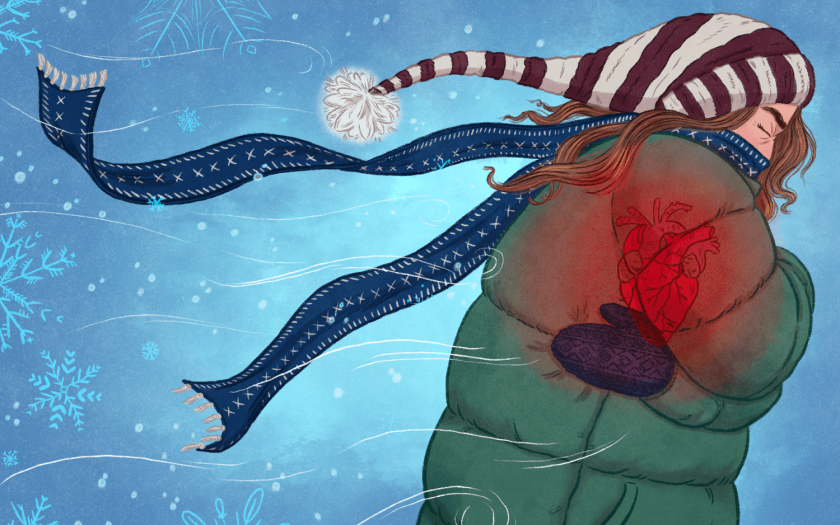Consuming fatty foods.
In cold weather, we often feel the urge to eat more fatty foods and this can be explained by several factors. First, the body uses more energy to maintain body heat in low temperatures, and fats provide more calories, which help keep us warm. Secondly, hormonal changes that regulate appetite may lead to increased hunger or cravings for more calorie-dense foods. Additionally, winter is full of holidays, and there is a tendency to indulge in various festive dishes, many of which are not heart-healthy. Excessive consumption of such foods increases the likelihood of heart diseases, such as heart attacks or strokes. Therefore, it is important to prepare healthy dishes and create a varied menu even in winter.
Reduced outdoor walks.
Winter weather adds physical discomfort, especially when the wind is strong, or it’s raining or snowing. This makes many people stay at home, as going outsides seems uncomfortable or even dangerous. In such conditions, people often choose a less active lifestyle and spend most of their time sitting or lying down. Since when you move less, your blood doesn’t circulate properly, which leads to the development of these diseases. In turn, moderate walks in the fresh, cool air will normalize blood pressure and improve heart function. Therefore, in winter, even if the weather is not good, it is important to find time for walks in the fresh air, dress according to the weather and not limit your activity, as this helps to keep your heart in good shape.
Increased muscle tension.
When the temperature drops, muscles instinctively contract to retain heat and prevent hypothermia. This can lead to constant tension, which negatively affects the normal functioning of the heart. Since when muscles are overstrained, the heart works more intensively to supply those muscles with blood and maintain the proper functioning of the entire body. As a result, this can lead to the development of certain heart diseases. If you go to the gym, choose exercises that are less intense and gentler.
Frequent hot baths.
In winter, when it’s very cold outside and snow is falling, many people enjoy warming up by taking a hot bath. But when you come in from the cold and immerse yourself in hot water, your blood pressure can drop. This can lead to heart problems and cause arrhythmias. In general, it is advisable to avoid taking very hot baths in winter, especially if you have chronic health conditions. If you still really want to take a bath, wait for about two hours after returning from outside, allowing your body to adapt to room temperature. It’s also better not to fill the tub with water that is too hot, but to make it simply warm. However, keep in mind that even a warm bath should be taken only once or twice a month to avoid overloading the heart.
Additionally, if you have certain heart conditions, it is important not to forget to take the medications prescribed to you (such as Dytor, Ivabrad, Prazopress). Ignoring the medication can put your body under stress and may negatively affect your well-being in winter.

